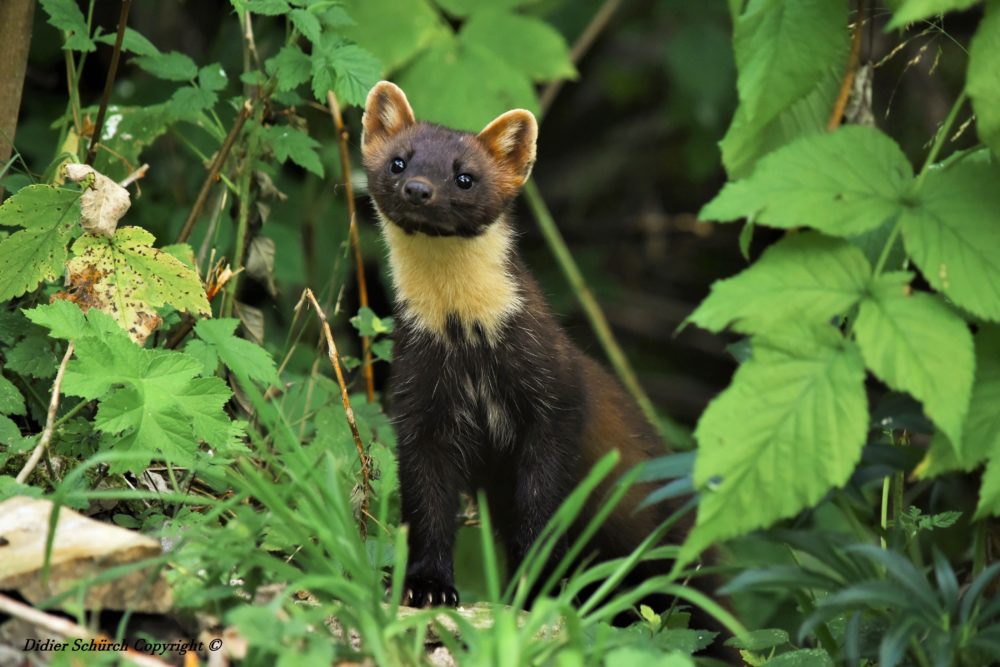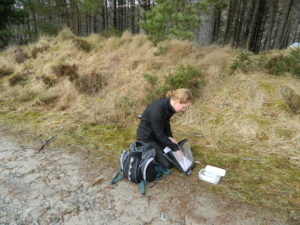Pine martens and effect of relocations

Safeguarding pine martens for future reintroductions
The elusive pine marten is making a comeback in Scotland, but they’re still very rare across the rest of the UK. With no recent evidence of breeding or natural recovery in Wales, reintroductions are the only way to bring pine martens back.
This project has now finished
The problem
Their loss is mainly due to destruction of woodland and intensive predator control by gamekeepers.
Working with the Vincent Wildlife Trust’s Pine Marten Recovery Project twenty pine martens from Scotland were successfully translocated to mid-Wales during autumn 2015. These 20 individuals were taken from a variety of sites in the north of Scotland. These sites were carefully selected based on habitat area and probable density of martens to minimise the likelihood of having a negative impact on the source population. However, marten populations are susceptible to overharvesting, and it is essential to assess the likely impact of removing pine martens on the source populations in Scotland.
The solution
 It is important that population estimates are verified, both pre- and post-translocation. During a preliminary survey of the source locations, the Vincent Wildlife Trust conducted scat surveys throughout the trapping sites. A second scat survey (post-translocation) was conducted the following year. These scat samples, and hair samples from any trapped and released animals, will be genotyped by the Molecular Ecology Research Group at Waterford Institute of Technology, using a panel of microsatellite markers to identify individuals. This will allow for the determination of a population estimate and will enable the calculation of a maximum harvestable number to determine what impact, if any, the translocations may have had on the source population.
It is important that population estimates are verified, both pre- and post-translocation. During a preliminary survey of the source locations, the Vincent Wildlife Trust conducted scat surveys throughout the trapping sites. A second scat survey (post-translocation) was conducted the following year. These scat samples, and hair samples from any trapped and released animals, will be genotyped by the Molecular Ecology Research Group at Waterford Institute of Technology, using a panel of microsatellite markers to identify individuals. This will allow for the determination of a population estimate and will enable the calculation of a maximum harvestable number to determine what impact, if any, the translocations may have had on the source population.
This would enable us to develop a removal strategy that would safeguard existing pine martnens as wider interest in the relocation of pine martens grows.
